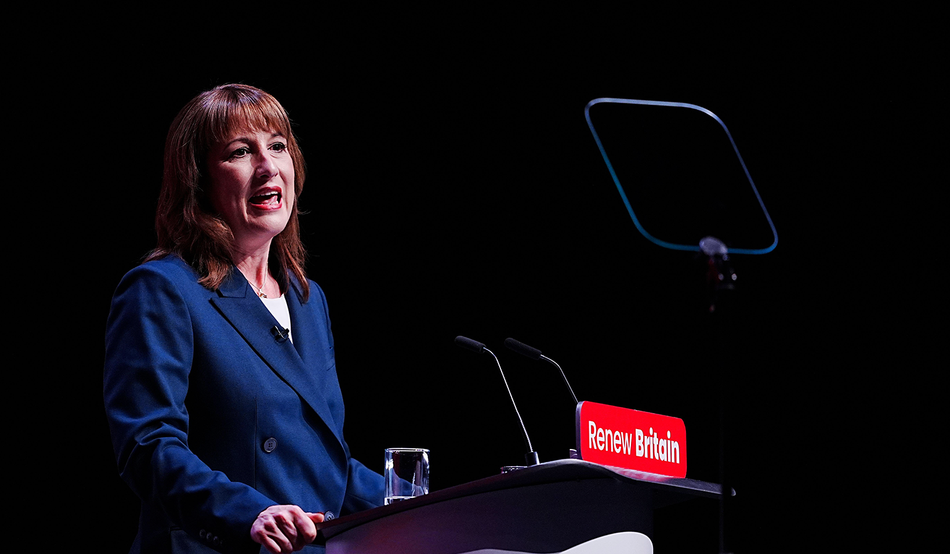The Labour party has, Rachel Reeves insisted to an anxious, if mostly polite, conference hall on Monday, come through bigger challenges than those it faces today. In one sense, she is right. The fraught dilemmas that loom in her November budget are not obviously more painful than those past Labour chancellors have had to navigate. Take the financial crisis of 1931, or the demands of the Korean war rearmament in 1950-51 or the IMF crisis of 1976. But you can only argue that Labour has “come through” any of these fiscal scrapes by taking an extremely long view, which skips over the long years of division, defeat and drift that the party ran into on each of these occasions.
With the Office for Budgetary Responsibility reportedly preparing to downgrade its assumptions about the underlying health of the economy, today’s chancellor looks set to face another historic crunch. So does Reeves have a plausible plan to avoid landing in such a dismal place? Despite the chancellor’s spirited attempt to persuade doubters that, from factory floors to hospital corridors, this Labour government is already making a difference, her turn in the spotlight left the conference hall none the wiser. She took a thinly veiled swipe at Andy Burnham’s unwelcome hints that a government with a bit more political will could overcome the Treasury’s “won’t“. Yet she gave few signs of how she will divvy up the financial pain. Until now she has preferred to suggest it can be avoided by “growth.“
Despite the government’s astonishingly bad polling numbers, all is not hopeless. This chancellor has two important things on her side—a large parliamentary majority, and several years left to run on the electoral clock. Her predecessors in 1931, 1950-51 and 1976 all lacked one or both of these. With time comes the possibility, at least, that something could turn up in terms of faster growth. Time also hopefully means that the fruits of the extra public capital investment—in, for example, new public transport schemes—that she reasonably trumpeted to the Labour faithful could begin to make itself felt.
But ideally, Reeves would also be using the breathing space available at this stage of the cycle to bring her political economy into line with rapidly changing times. There weren’t many signs of that.
The thrust of the speech was organised around the rapidly crumbling binary division between Labour and the Conservatives. Reform emerged only as an afterthought, and the variety of progressive opponents now sapping Labour from the left were entirely ignored. The climate crisis barely registered; her few words on clean energy were drowned out by others on airport expansion. The US was held up as a normal partner for business, with no acknowledgement of the capricious and authoritarian turn of Trump’s America. Employers, meanwhile, will have listened in vain for any sense of a strategy that could eventually ease the rising weight of the taxes and regulations which the government is currently asking them to shoulder.
Of course, chancellors can’t hope to keep everyone happy, especially not in tough times. And, as the crunch budget approaches, repeating election-time evasions could merely succeed in aggravating all sides. Promising, for example, to be ever more pro-employee and ever more pro-business. Or vowing to stand on the side of “working people,” while defining that term so loosely that it could include the executives running FTSE 100 firms.
In November, Reeves might do better by answering the fraying state of the social fabric with a sharper choice than she was willing to spell out to this week. “Contribution” was one word she did utter three times, and pointedly. This could help her to do that. Regardless of what magic hoped-for growth may yield in the long run, demanding a greater contribution from those who can afford it is probably the only way to avoid immediate further damage to already stricken local public services, and the already straitened finances of poorer families.
And yet the speech left the word “contribution” hanging, ambiguous. Yes, it could be about the rich paying their way, or giving preference to firms that produce something real, rather than making profit from playing financial speculation. But it could also be used as a pretext for restricting the social entitlements of foreigners, disabled people or others who are somehow deemed to be contributing less to society.
It could equally be a mix of all of these things. Despite a speech that lasted the best part of an hour on Monday, we will just have to wait until the budget to find out.












